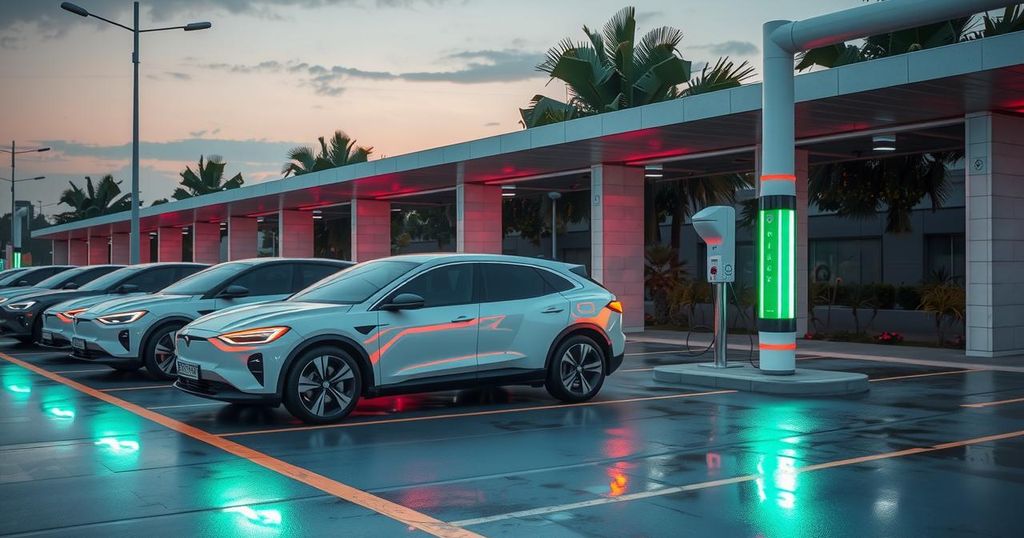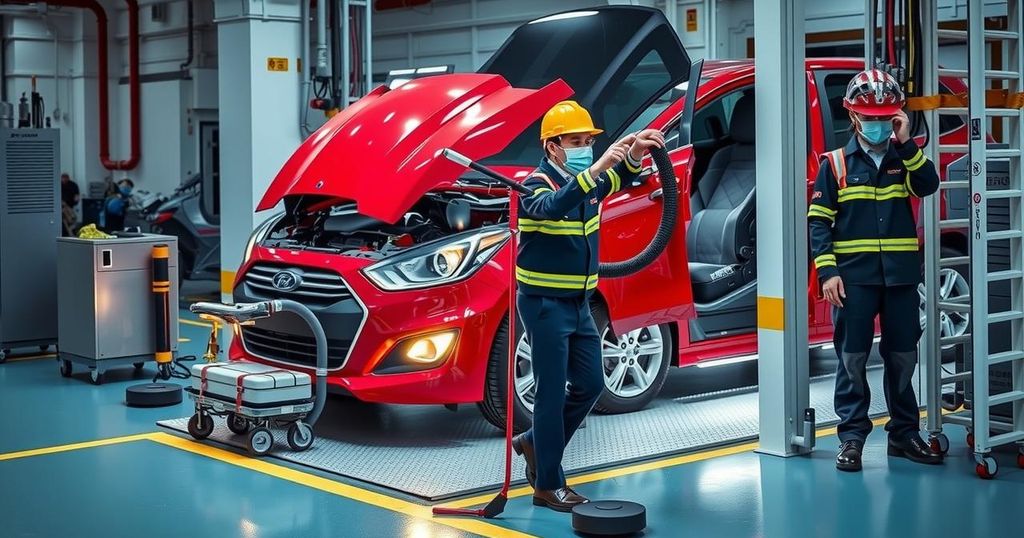Expert Advocates for Nigeria to Transition to Electric Vehicles
Sunday Aluko, a Nigerian automotive expert, has urged Nigeria to embrace electric vehicles to reduce fuel dependency and transform transportation. He highlights critical reforms needed in energy, transportation, and vehicle manufacturing for successful EV adoption. With incentives and infrastructure improvements, Nigeria can potentially lead in green mobility solutions, creating economic opportunities and fostering environmental sustainability.
Sunday Aluko, a United States-based Nigerian expert in the automotive manufacturing sector, has emphasized the critical need for Nigeria to adopt electric vehicles (EVs) to significantly decrease its dependence on imported fuel and transform its transportation framework. Aluko identified pressing issues such as rising fuel costs, occasional shortages, and fuel theft as compelling motivations for incorporating eco-friendly electric vehicles into daily use. He advocates for substantial reforms in the country’s energy, transportation, and vehicle manufacturing industries to support this transition.
Conducting thorough research, Aluko discovered that electric cars could serve as an effective solution to Nigeria’s ongoing energy and transportation challenges. He argues that prioritizing the adoption of EV technology, alongside developing essential infrastructure, is vital in addressing environmental degradation, minimizing fuel dependence, and fostering economic opportunities. Despite the clear benefits, he cautioned that inadequate infrastructure, particularly the lack of charging stations, presents a significant hurdle in this endeavor.
Aluko called for the government to implement incentives designed to stimulate growth in the electric car market. He proposed reduction of import duties on electric vehicles and tax incentives for manufacturers as methods to encourage this transition. He remarked, “This situation underscores the importance of creating a favourable environment for electric vehicle adoption. Without the right policies and infrastructure, the transition will remain a distant goal.”
Further advocating for collaboration with global electric vehicle manufacturers, Aluko believes that such partnerships could enhance local production capabilities, lower overall costs, and create job opportunities for Nigerians. He expressed his vision for Nigeria to spearhead green mobility solutions within Africa, highlighting the economic potential and environmental necessity of a shift towards electric vehicles. He stated, “The more we invest in electric vehicle infrastructure and awareness, the faster we can reduce our dependence on imported fuel and improve transportation efficiency for Nigerians.”
Aluko encourages innovative strategies for promoting electric vehicle adoption in Nigeria, such as the development of solar-powered charging stations and accessible financing options for consumers. He asserted that these initiatives would represent preliminary steps towards diminishing fuel dependency and establishing Nigeria as a pioneer in sustainable transportation in Africa. He concluded, “With the right policies, infrastructure, and public awareness, Nigeria can transition to electric vehicles, creating a future of economic growth, environmental sustainability, and energy independence.”
The automotive industry in Nigeria faces numerous challenges, including a long-standing reliance on imported fuel, frequent shortages, and rising fuel prices. These issues are compounded by ongoing incidents of fuel theft, which exacerbate the situation. As the global shift towards electric vehicles gains momentum, there is a pressing need for Nigeria to reform its energy and transportation sectors. Experts like Sunday Aluko advocate for the adoption of electric vehicles to address these crises while promoting environmental sustainability and economic growth.
In conclusion, the transition to electric vehicles in Nigeria, as advocated by expert Sunday Aluko, presents significant potential for reducing fuel dependency and enhancing environmental sustainability. By prioritizing the necessary reforms, investing in supportive infrastructure, and fostering partnerships with global manufacturers, Nigeria could emerge as a leader in sustainable transportation across Africa. The adoption of electric vehicles is not merely an environmental consideration; it is also a substantial economic opportunity that could drive growth and innovation in the automotive sector.
Original Source: punchng.com




Post Comment